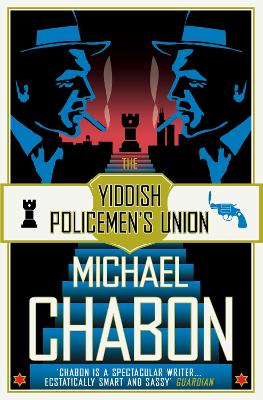Reviewed by empressbrooke on
However, while I sucked down the other one ([b:The City and the City|4703581|The City and the City|China Miéville|http://d.gr-assets.com/books/1320475957s/4703581.jpg|4767909]) and decided it was my favorite book out of the last hundred I've read, The Yiddish Policeman's Union took me forever to read and I never felt more than lukewarm about it. All the elements were things I SHOULD have enjoyed, but something about the prose just slowed me down and made reading feel like a chore.
I can't even point to anything specific to explain why I had to slowly chip away at this book 10 pages here, 15 pages there, in order to get through it. Usually I'm able to say something a little more constructive about why something didn't work for me, but all I'm left with after finishing it is a bit of murky confusion.
Reading updates
- Started reading
- 11 March, 2013: Finished reading
- 11 March, 2013: Reviewed
